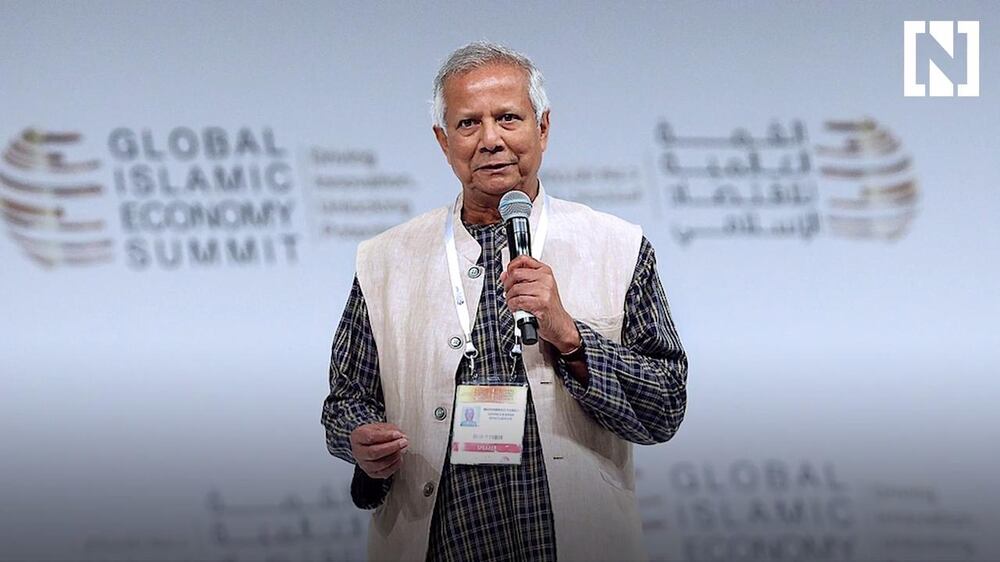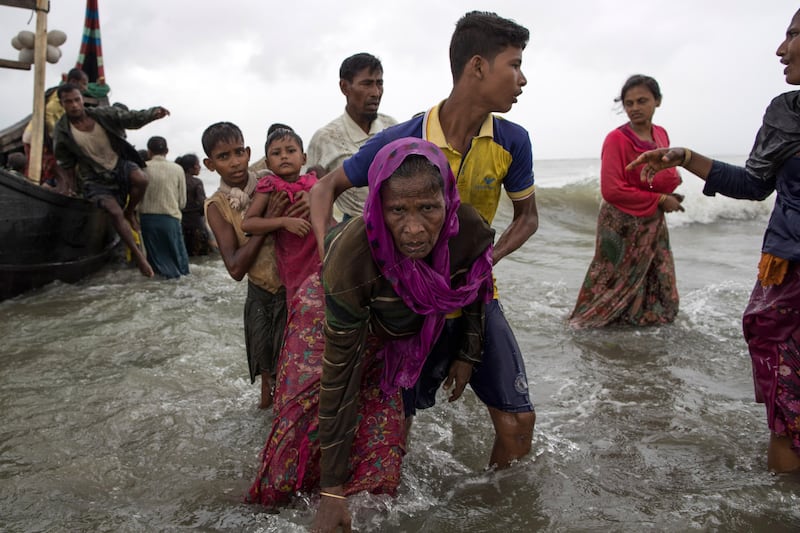Earlier this week, the United Nations human rights chief, Zeid Ra'ad Al Hussein, gave his assessment of the plight of the Rohingya. "The situation seems a textbook example of ethnic cleansing," Mr Al Hussein said. That such a statement can still be made in 2017 – and it is certainly not hyperbole – is quite telling. And yet, the way in which we now approach the disastrous condition of the Rohingya Muslims remains problematic.
There are those who try to minimise the campaign against the Rohingya in an effort to shore up support for the erstwhile leader of Myanmar, Aung San Suu Kyi, whom they consider to be the best hope for Myanmar. At least such parties are clear about their own priorities. But for those who sympathise with the Rohingya, Ms Suu Kyi is the object of outrage and calls have been made to strip her of her Nobel Peace Prize, among other things. Perhaps, however, the outrage is somewhat misplaced. Not that it is not deserved, but because the outrage is probably best placed elsewhere.
#Zeid: Treatment of Rohingya in #Myanmar seems a textbook example of ethnic cleansing #HRC36 https://t.co/kCggYYnjRa
— UN Human Rights (@UNHumanRights) September 11, 2017
Besides, there is no mechanism to remove the prize. If there were, Ms Suu Kyi would certainly be undeserving of it, but it would hardly help the Rohingya to have it taken from her. It might make a lot of people in the international community feel better, but how that would help them remains unclear.
The Rohingya Muslims are being brutalised in a disgraceful fashion, but the international community seems to have little in the way of a plan of action to deal with it. That inept and incompetent approach is also not an accident. The displacement and abuse of the Rohingya has been an issue raised by many in the international community for years, but little has resulted from these calls. Azeem Ibrahim, the British writer, published The Rohingyas: Inside Myanmar's Hidden Genocide a year ago. Numerous reports have been issued since then. The international community cannot feign ignorance.
Yet instead, far too much attention seems to be focused on the Nobel Peace Prize laureate, as though the international community judged her to be a saint, and discovered, instead, that she was a politician with her own prejudices.
________________________
Read more on the Rohingya
[ Rohingya crisis: From India to Malaysia, refugees face hardship and uncertainty ]
[ As Rohingya flee Myanmar, Suu Kyi skips UN General Assembly ]
[ Chorus of criticism for Aung San Suu Kyi grows louder as former friends disown her ]
________________________
It isn't that she has no role to play: she does. Other peace laureates have called on her to decry the abuses carried out against the Rohingya, including Desmond Tutu of South Africa and Muhammad Yunus in this newspaper's pages just this week. But here is the rub. Ms Suu Kyi has little to no real motivation in this regard. Internationally, her reputation is actually probably damaged beyond repair. Even if she were to change tack now, she wouldn't regain her global popularity. And domestically, she would gain very little. It doesn't appear that domestic popular opinion is particularly opposed to the mistreatment of the Rohingya. If anything (and this is difficult to measure with precision), the evidence is to the contrary. Populism can deliver some very troubling results, and not just in Myanmar, as we can all see to varying degrees.
The Rohingya issue has become one of great angst, but with little in the way of actual changes in policy. Are all members of the international community offering, for example, to house refugees from Myanmar until they can return home? Or do statements suffice?
Muhammad Yunus speaks out on the Rohingya

There is a precedent for this type of shallow populism, of course. For several generations, various leaders in the Arab region have raised the banner of Arab unity and insisted that the Palestine question must be resolved fairly. But when it comes to the question of providing rights and protections for Palestinian refugees who have been forced to leave and reside in other countries in the region, far too many administrations and authorities have made their lives incredibly difficult. The irony, of course, is that those same authorities proclaim their fealty to the cause, while making the lives of Palestinians under their own control miserable.
________________________
More on Myanmar in Opinion
[ Together we must fight the hatred, abuse and intolerance against the Rohingya ]
[ Why does the world do nothing for the Rohingya? ]
[ It really is time to stop making excuses for Aung San Suu Kyi over the Rohingya ]
________________________
Is that the kind of fate that is to now face the Rohingya, where their lives and their well-being must be paid lip-service to in order to satisfy our own feelings of outrage, but where actual policies are rather far and few between? That instead of doing anything concrete to change their lives, energy and attention is given to symbolic issues (such as insisting Ms Suu Kyi be stripped of her Nobel Peace Prize)?
It is at times like these that the very idea of an international community is questioned. And the failings of the international system are always paid for by the weakest and the most vulnerable. The Rohingya Muslims of Myanmar deserve far better.
Follow The National's Opinion section on Twitter





